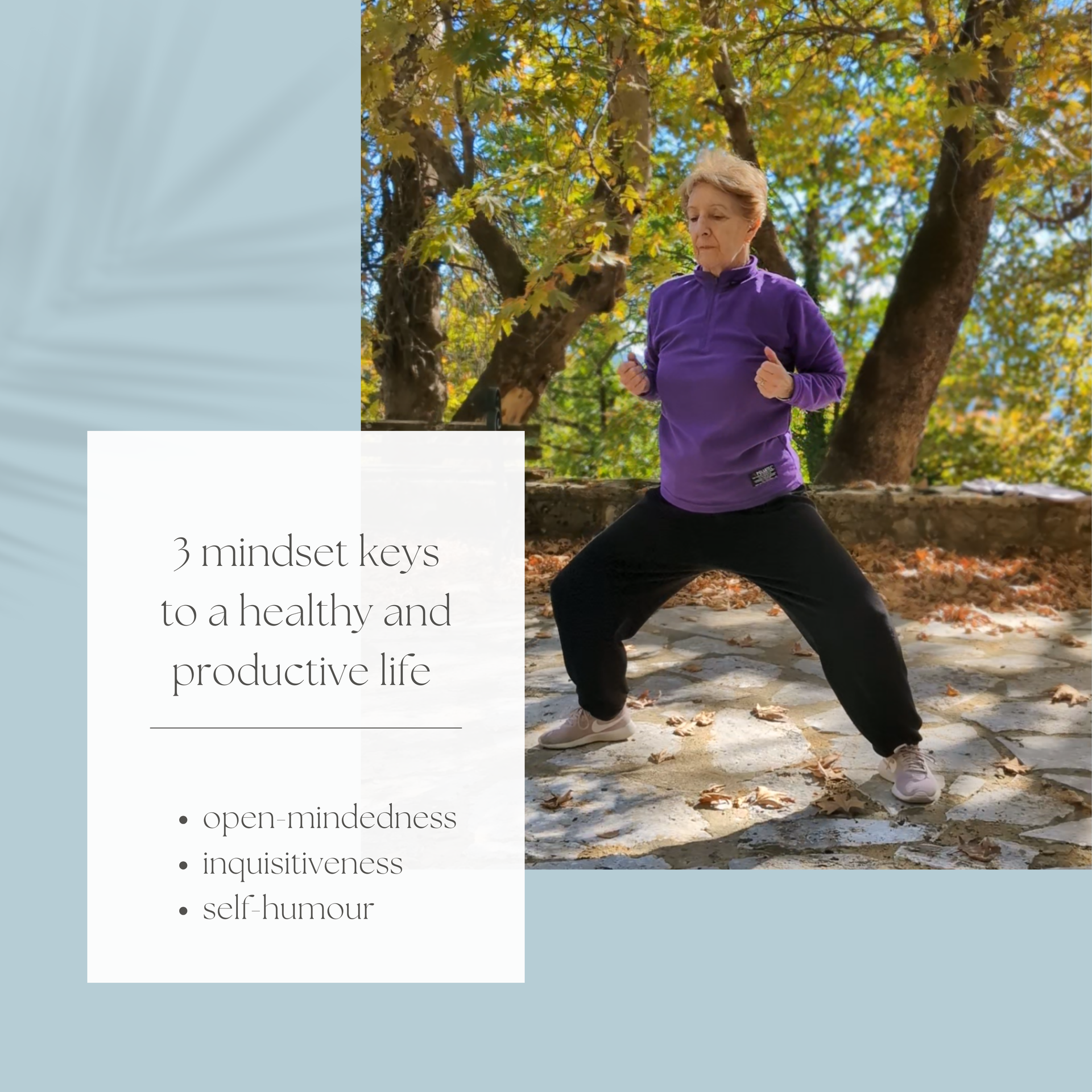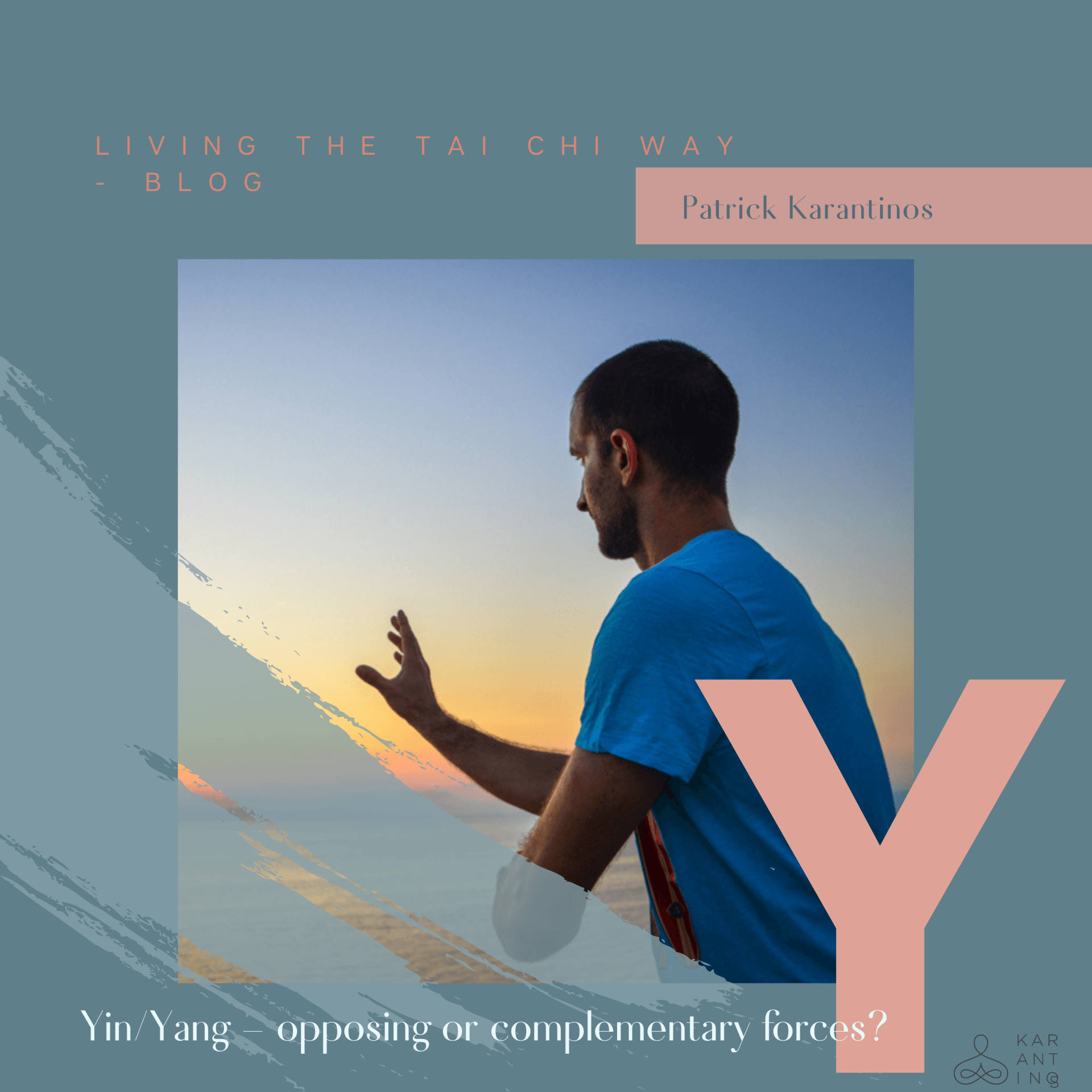‘Living the Tai Chi Way’ - my blog
Patrick Karantinos
Welcome to my Blog ‘Living the Tai Chi Way’

This is my first entry to this blog, my first blog (double
whammy), and just yesterday I was talking with my wife (sorry ladies, this stud is taken) about how in less than a year, things have changed so fast in my life. New site, with a blog this time, Facebook, Instagram, Linkedin and a Youtube channel, my content requirements have skyrocketed. I just wanted to give you a glimpse of what I am about and perhaps help you by sharing what has helped me along the way and given me strength, physically and mentally.
So, what has really helped me go through life's difficulties? Well apart from my friends and family, who have been there on most if not all bad turns on the way, there has been one thing that has worked each time. And that is treating life's difficulties as a challenge, a chance to apply the teachings and not as a problem. Something that, mind you, is not easy but the results are always satisfying in the end. I am not going to get into the teachings per se here, as that requires books and not a mere blog entry, I will though talk about the ground for those teachings to flourish, a state of mind where there is only the action and not the actor.
This state of no ego is a means to an end in itself, as when one lives and acts on that plane, everything is transformed. Clarity of mind, equanimity, vitality and better focus are some of the natural side effects of this state. But how does one reach this state? Don't you have to meditate like, forever? I'm way too busy to spend two hours a day meditating... and so on so forth. These are some possible arguments which it will be my pleasure to dispel.
First of all, how does one reach this state. Ninjutsu Grandmaster Hatsumi Sensei says that when training, we must all train with the heart of a three-year old child. No hesitation, no second thoughts, no worrying about the result, complete and utter focus on the goal.
How to get there is secondary for them, intention and unity is first. Just observe yourself, body, and mind. You can start with easy everyday activities like brushing your teeth or washing up. When doing these things observe everything that is coming through your senses and then go inside and observe what you think and how you feel.
The only trick to that, which makes the quantum difference, is that you must be an observer and not a judge and that you must not linger on any thought or feeling for more than the moment when it comes. Acknowledge them, never letting your mind get too involved. Just remain an impassive observer by always returning to observation and letting go of judgement.
This if done frequently on a daily basis, is enough to give you a glimpse of what it means to be in a state of no mind. Our minds already have a certain momentum which makes it difficult to only observe without getting involved. And this is why training body and mind via any traditional art is so important. Because you create a different momentum in your mind, one of focusing on the moment, body, mind and soul if you will. Using the two together, mindful observation in everyday life and traditional martial arts training, can be very rewarding.
I remember the first time I got involved in mindfully observing myself. I hadn't been training and meditating for a long time and everything was new and exciting. So, when I read a book on mindfulness (“Meditation in Action” by Chögyam Trungpa), I immediately began to practice it in my everyday life. Not long after that, it might have been a month or so I don't remember (please be understanding I'm talking about more than 20 years ago), I was gone for a summer holiday, camping by the sea in Evia. I recall waking up because of the heat and getting out of the tent. It was super sunny and there was a pleasant wind blowing. I grabbed my towel which was hanging on my tent and at that moment, there was peace. No thought, no emotion just peace, an emptiness that somehow enveloped everything: myself, the beach, the sky, the sun, my towel. What followed was a super blissful state of arriving and then just like that, the moment my mind caught up with it, it vanished.
Now, still after all these years, this practice of mindful observation has been the catalyst to most of my precious moments and periods in life, the guiding factor in making me who I am and what I do. It has given me clear insight to many of my deeply rooted issues and has given me the reassurance that whatever the problem, just by looking at it and not judging it, I will find the right way to deal with it. I was not and am not someone special in any way, I 've just had the curiosity and the perseverance to carry on with it. I'm sure that you can too!
I honestly hope that this has been helpful for you guys. Thanks for reading, until then feel free to contact me for feedback, more information and requests on other topics you 'd like to hear about (related to martial arts training and mindfulness of course, not advanced mathematics or building an igloo or something).
Patrick

Zen for most people means to decorate your space as minimally as possible, preferably adding some stones and/or water fountains, and smiling all day even when shit really hits the fan. Now this might be new information to some of you, but Zen is the Japanese equivalent to the Chinese word Ch’an, which in turn derived from the Sanskrit word Dhyana, meaning in essence ‘meditation’. It is an offshoot of Buddhism, and yet teachings like “If you meet the Buddha, kill him” attributed to the Zen master Linji Yixuan, are very prominent for all their ambiguity, or because of it. So, who cares about this weird oriental religion/philosophy? Well, apart from the people living in countries where Zen is part of their culture and they are quite a few, there has been a growing number of people all over the rest of the world that find this oriental mumbo jumbo intriguing. Something about its rebellious, non-conforming attitude and the minimal stylistic approach seems to be resonating with many people from all over the world. But is that the only thing that we as outsiders can gain from this philosophy? Or can we really hear the sound of one hand clapping? Zen, at least according to my understanding, is about gaining a moment-to-moment clear experience of the present. No doctrines, no inner dialogue, no preconceived ideas, not even teachers (hence kill the Buddha) should stand between you and what is now. It is not that studying, or following a teacher are to be avoided, it is just that all these things can only get you until one point. The last step, the moment of realization, that is something that can only happen when all discussions have ended, both inside and outside.




